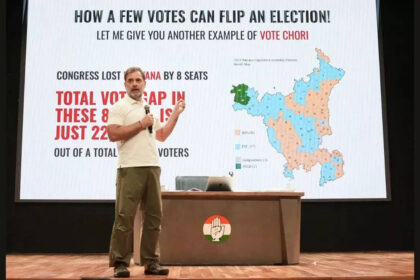Supreme Court to Hear Interim Relief Pleas in Waqf Act Amendment Case
The Supreme Court on Thursday said it would hear the petitions challenging the constitutional validity of the Waqf (Amendment) Act, 2025 on May 20, for the limited purpose of interim relief.
A Bench of Chief Justice of India (CJI) BR Gavai and Justice AG Masih will consider whether interim relief of stay is required on three issues – waqf by user, nomination of non-Muslims to the Wakf Council and State Waqf Boards and identification of government land under waqf.
The Court said that in the meanwhile, the assurance given by Solicitor General Tushar Mehta that the Central government would not take any adverse action would remain.
The Central government had earlier told the Supreme Court that certain key provisions of the controversial Waqf (Amendment) Act, 2025, including the formation of the Central Waqf Council and Waqf Boards and provisions on de-notifying properties already declared or registered as waqf, will not be acted upon for the time being.

CJI BR Gavai and Justice AG Masih
“We will grant two hours to each side,” the Court said before adjourning the matter.
Today’s order was passed in a slew of petitions challenging the constitutional validity of the Waqf (Amendment) Act, 2025.
The Lok Sabha had passed the law on April 3, while the Rajya Sabha cleared it on April 4. The amendment Act received Presidential assent on April 5.
The new law amended the Waqf Act, 1995 in order to address the regulation of Waqf properties – dedicated exclusively for religious or charitable purposes under Islamic law.
A batch of petitions were filed before the top court challenging the amendment’s validity, including by Congress Member of Parliament (MP) Mohammad Jawed and All India Majlis-e-Ittehadul Muslimeen (AIMIM) MP Asaduddin Owaisi. More such petitions followed in the ensuing days.
The petitioners contended that the amendment amounts to discrimination against Muslims. They argued that the amendments selectively target Muslim religious endowments and interfere with the community’s constitutionally protected right to manage its own religious affairs.
On the other hand, six Bhartiya Janta Party-ruled States also moved the Supreme Court in the matter, in support of the amendment. These intervention applications have been filed by the States of Haryana, Maharashtra, Madhya Pradesh, Rajasthan, Chhattisgarh and Assam. These States have primarily highlighted how they would be affected in case the constitutionality of the Amendment Act were to be tinkered with.
At the core of the challenge is the removal of waqf by user from the statutory definition of waqf. The petitioners argued that this omission would deprive historical mosques, graveyards and charitable properties, many of which have existed for centuries without formal waqf deeds, of their religious character.
In response, the Union government told the Supreme Court that the Waqf (Amendment) Act, 2025 was brought in to curb the misuse of waqf provisions that were being misused to encroach private and government properties. In a written response to the petitions challenging the new law, the Centre said after the previous amendment to the Waqf Act in 2013, there was a 116 per cent rise in “auqaf area”.
Defending the abolition of the concept of ‘waqf by user’, the Centre said despite there being a regime of mandatory registration for all kinds of waqf since 1923, individuals or organisations used to claim private lands and government lands as waqf “which not only lead to deprivation of valuable property rights of individual citizens but similarly unauthorized claims over public properties.”
The Centre also said that the exclusion of “waqf by user” from the definition of waqf does not curtail the right to dedicate property to God, but merely regulates the form of dedication in keeping with statutory requirements.
On the objections regarding the inclusion of non-Muslims in the Central Waqf Council and State Waqf Boards, the Centre said that the changes in the composition of these bodies do not impair the Muslim community’s rights under Article 26, it has stated. The addition of non-Muslim members are in a “microscopic minority” in the Council and Boards and their presence is meant to give inclusivity to the bodies, it was submitted.
On April 17, the Central government had assured the Court that it would not enforce several key provisions of the Act for the time being. The Court had recorded this assurance, and decided not to order any express stay.
Former Chief Justice of India Sanjiv Khanna had earlier recused himself for hearing the petitions and referred it to a bench led by now CJI BR Gavai.
Also Read : US Student Missing in Russia After Reportedly Crossing Border from Finland







